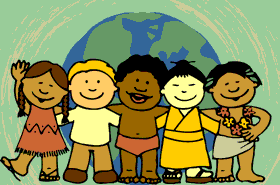Before anything, I’d like to greet everyone a happy Chinese New Year! 恭喜發財!萬事如意。年年有餘。新年快樂!:-)

And yes, I’m Chinese (naturalized Chinese-Filipino), not Korean, Japanese, Thai, Taiwanese or whatever you think I look like. :))
Why my surname is Santos is an overrated question. Here’s the story, from what I know: My grandfather and his father came to the Philippines from Fujian (厦门, 福建), China in the 1940s when they decided to turn a new leaf in their lives and make trading as a business here.
In some unfortunate circumstance, my great grandfather lost his re-entry permit to the Philippines, leaving my grandfather alone in this foreign country thus becoming an immigrant settler with nothing but his dream of continuing to live with strength and dignity.
Life was extremely hard for him, I imagine. In his teens, he sold taho (Chinese mongo bean jelly or meal with syrup) and peanuts as a street vendor under the excruciating heat of the sun, walking by the same vicinity every day.
One pleasant afternoon, a strike of luck came across, and he was hired as an assistant in a warehouse / small enterprise selling auto parts. Because of hard work, trust was bestowed upon him and the Chinese-Filipino family who owned the warehouse adopted and treated him as a member of their household.
In 1974, President Marcos relaxed the naturalization policy and many Chinese in the country were able to become Philippine citizens. It was during this time that my grandfather has become a naturalized Filipino citizen and opted to change his surname from Chiongpico to Santos to give due credit to the Santos family who raised him and gave him the opportunity to build his own business for the first time.
From Eng Kiam Pak, he registered for a Filipino name which is Jose Santos, Sr. (my father being the junior). Years after, he met my grandmother and got married. How their love story blossomed, however, is up to now, unknown to me (it might have been pre-arranged following the tradition).
My maternal grandparents, on the other hand, came from Guangdong (九龙,廣東) province in China and also moved in the Philippines during the 1940s. They did not change citizenship and kept their family name, hence keeping the surname Chin.
What does it mean to be Chinese? Living in the Philippines, being Chinese can be a down or up, a debit or credit on our life ledger: being a minority race, having an unique culture and living up to certain stereotypes. It’s as if I am caught between two different worlds (experiencing a sense of “twoness”).
Nevertheless, I do appreciate who I am and where my ancestors came from; I embrace my Chinese heritage as one that was born from a great civilization and also one that highly values education and progress.
ℒℴve ♡❤❤ Happy New Year ❤❤♡ ℒℴve ♡
祝 ┏┯┓┏┯┓┏┯┓┏┯┓┏┯┓┏┯┓♥(\ /)
福 ┠恭┠┨賀┠┨新┠┨年┠┠快┨┠樂┨ღ( . .)ღ
您┗┷┛┗┷┛┗┷┛┗┷┛┗┷┛┗┷┛c(”)(”)


I get you, girl! When people ask me if I’m Chinese, and I say yes, they ask, then why is your last name not Chinese? I just tell them, I was adopted by my mother’s husband when she was abandoned by my full-blooded Chinese father. He carries the surname Hong (it’s actually Ang since he is Fujianese). My mother, on the other hand, is a chutsiya, half-Chinese (Cantonese)and half-Filipina. My paternal grandmother did not want her to marry my real dad.
It might be TMI, but I want to thank you so much for this entry. Cheers!
Hi Kiersten. We also have almost the same name. I also have an issue when most people get Kirstin as Kristin. I would always have to spell out that “i” comes before “r.” Ugh sometimes that annoys me. Anyway, thanks for dropping by and sharing your story here. Nope, it wasn’t too much info; it was just enough. 😀